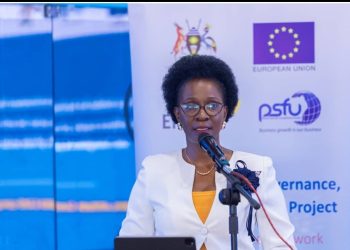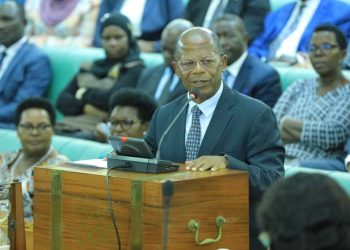Children rights activists have condemned what they called the high level of tolerating violence against women in Uganda despite the strides being made to come up with laws against sexual and gender-based violence.
“Some people do not acknowledge some forms of violence. For example, victims of rape or sexual harassment are victimised, because society still tolerates these forms of abuse,” the senior programmes officer at Raising Voices, Janet Nakuti, said.
According to the World Health Organisation (WHO), social tolerance of violent behaviour can be tracked back from childhood. This is through the use of corporal punishment and witnessing violence at home or in the media.
Nakuti made the remarks during the release of key findings for the baseline survey on knowledge and perceptions of women’s rights dubbed: Violence Against Women, Women’s Economic Empowerment and Women’s Political Participation and Leadership.
A total of 3,600 households from central, western, eastern, and northern regions were interviewed. The baseline survey was conducted by the Uganda Bureau of Statistics (UBOS), in partnership with UN Women, under their flagship programme, Making Every Woman and Girl Count: Supporting the Monitoring and Implementation of the SDGs through Better Production and Use of Gender Statistics.
According to the report, at least 66.6% of the women think that if a girl or woman is raped, it is better for her to keep it to herself, compared to 33% of the men. The majority (58%) of the female respondents and 42% of the male, think the majority of women stay in abusive relationships for fear of further abuse by the perpetrators.
Sixty percent of the women believe women should tolerate violence to keep their families together, compared to 39.9% of the men. However, the report also indicates that women are more aware of the presence of laws on violence against women, at 55.8%, compared to 44% of the men.
Jane Mpagi, the former director for gender and community development at the gender ministry, said there was need for production of more gender-sensitive statistics in order to have tailor-based interventions and informed decisions by policy makers.
She highlighted the example of sexual harassment, which she said was rampant in workplaces, but that there were statistics to back it.
“Many girls and women who are sexually harassed are suffering silently because they fear to open up. As a country, we need to come up with research to reveal the extent of this abuse or else we will keep talking about it without action,” Mpagi said.
Jovah Kamateeka, the Woman MP of Mitooma District, said there was need for women empowerment through education and sensitisation of men on violence against women. Vitus Kato Mulindwa, the deputy executive director in charge of corporate services at UBOS, said they were committed to producing gender sensitive quality statistics.






























































